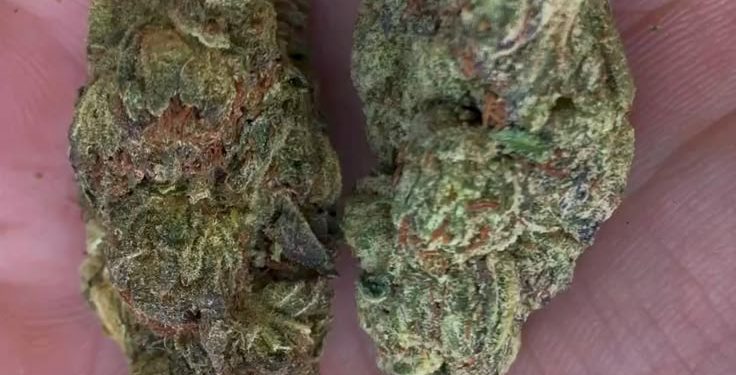The market for cannabis edibles online has exploded in recent years, offering a discreet and diverse range of products for consumers. From gummies and chocolates to infused beverages and baked goods, edibles provide a smoke-free alternative for experiencing the effects of cannabis. When searching for “top” THC and CBD edibles online, it’s crucial to distinguish between legal, regulated markets and the illicit market, especially for individuals in the United Kingdom where cannabis laws are stringent. This article will discuss what constitutes “top” edibles in legal contexts and, crucially, reiterate the significant risks associated with illicit online purchases in the UK.
The UK Legal Reality: A Fundamental Distinction
It is paramount to state unequivocally: recreational cannabis, including THC edibles, is illegal in the UK. Under the Misuse of Drugs Act 1971, THC is classified as a Class B controlled drug. This means that manufacturing, possessing, supplying, or importing THC edibles for recreational use carries severe penalties, including significant fines and imprisonment.
- Legal CBD Edibles in the UK: Edibles containing less than of THC per finished product (and derived from industrial hemp with less than THC) are legal for over-the-counter sale. These are non-intoxicating and are regulated under Novel Foods regulations by the Food Standards Agency (FSA). Many reputable UK-based companies offer a wide range of these legal CBD edibles.
- Illegal THC Edibles in the UK: Any edible product containing more than of THC per item is illegal for general sale, possession, or supply. Therefore, any “top THC edibles” found online for recreational purchase in the UK are part of the unregulated, illicit market.
While medical cannabis is legal in the UK with a specialist doctor’s prescription, THC edibles are not typically prescribed or dispensed within this legal medical framework. Medical cannabis is usually provided as oils, capsules, or dried flower for vaporization.
What Makes a “Top” Edible (in Legal Markets)
In jurisdictions where cannabis is legal and regulated, “top” edibles distinguish themselves through several key factors:
1. Accurate and Consistent Dosing
- Precise Milligram (mg) Labelling: Top edibles clearly state the exact amount of THC and/or CBD per serving and per package. This allows for predictable and repeatable experiences.
- Homogeneous Infusion: The cannabinoids are evenly distributed throughout the product, ensuring that each piece delivers a consistent dose.
2. Quality Ingredients and Taste
- Premium Cannabis Extract: The use of high-quality, clean cannabis extracts (e.g., distillate, full-spectrum extract) free from impurities.
- Delicious Flavours: Top brands invest in creating edibles that taste good, effectively masking any cannabis flavour. Popular options include fruit gummies, chocolates, and infused beverages.
- Dietary Options: Many leading brands offer vegan, gluten-free, or sugar-free options to cater to diverse consumer needs.
3. Comprehensive Lab Testing
- Third-Party Verification: Reputable brands provide easily accessible Certificates of Analysis (CoAs) from independent third-party labs. These reports confirm:
- Cannabinoid potency (THC, CBD, other cannabinoids).
- Terpene profiles.
- Absence of contaminants (pesticides, heavy metals, mould, residual solvents).
4. Brand Reputation and Consumer Reviews
- Established Presence: Brands with a history of consistent quality and positive consumer feedback in legal markets are generally more reliable.
- Transparent Practices: Companies that are open about their sourcing, extraction methods, and manufacturing processes build trust.
5. Innovation in Delivery and Onset
- Fast-Acting Formulations: Advances in nanotechnology allow some edibles to have a quicker onset (e.g., 15-45 minutes) compared to traditional edibles (30 minutes to 2 hours), providing a more predictable experience.
- Diverse Formats: Beyond traditional gummies and chocolates, top brands offer infused drinks, dissolvable powders, and savory snacks, expanding consumer choice.
Examples of Top Edible Brands (in Legal Markets)
While these brands are not legally available for recreational purchase in the UK, they represent the quality and innovation found in regulated markets:
- Wana Brands: Known for their wide variety of gummy flavours and consistent dosing.
- Kiva Confections: Offers a range of high-quality chocolates, gummies, and mints.
- Wyld: Popular for their fruit-infused gummies with specific cannabinoid ratios.
- Cornbread Hemp / Cheech & Chong’s Cannabis Co. / Five: Examples of brands offering federally legal Delta-9 THC gummies in the US (derived from hemp with less than 0.3% Delta-9 THC by dry weight), which are distinct from illicit high-THC products.
The Risks of Seeking “Top THC Edibles” Online in the UK
For UK residents, attempting to find “top THC edibles” online from illicit sources carries severe risks:
- Legal Consequences: As reiterated, purchasing or possessing these products is illegal and can lead to arrest, fines, and imprisonment.
- Unknown and Dangerous Contents: Illicit edibles often have inaccurate potency labels (e.g., falsely claiming THC), are prone to contamination with pesticides, mould, or heavy metals, or may even contain dangerous synthetic cannabinoids (Spice) instead of actual THC.
- Scams and Fraud: Many online vendors are fraudsters who will take your money without delivering any product.
- No Consumer Protection: There is no recourse if you receive a harmful product or are scammed.
Conclusion
The concept of “top” cannabis edibles is well-defined in legal, regulated markets, where product quality, accurate dosing, and safety are paramount. However, for individuals in the UK, the landscape is entirely different. While legal CBD edibles are widely available from reputable online retailers, seeking “top THC edibles” online for recreational use means engaging with the illicit market, which carries substantial legal, health, and financial risks. The only safe and legal access to cannabis in the UK for medical reasons is through a specialist doctor’s prescription, which does not typically include recreational-style THC edibles.




